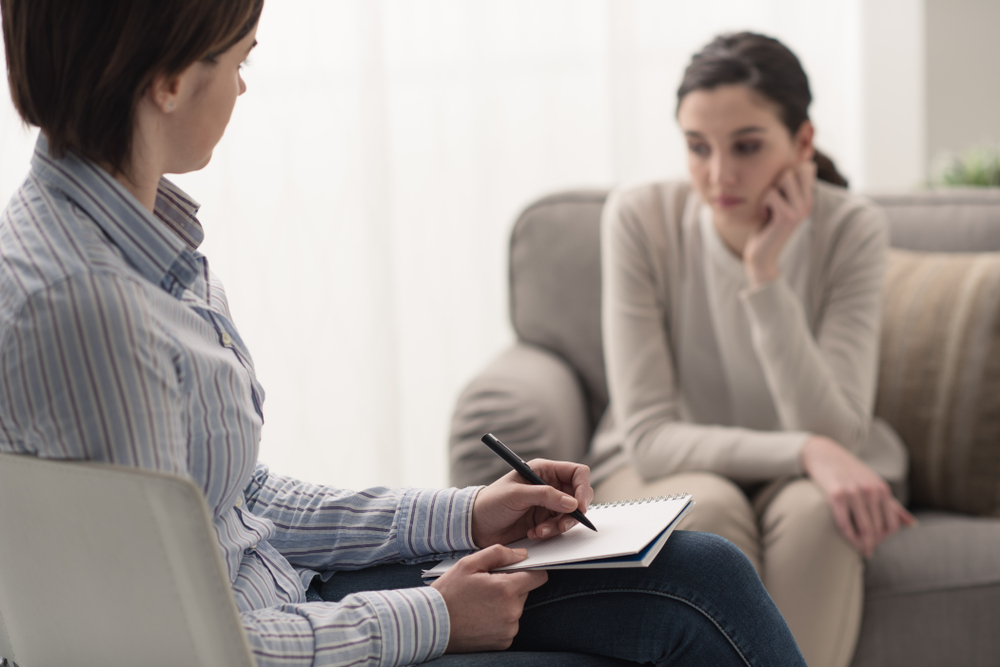
This may not surprise you but recent studies have shown that global rates of both depression and anxiety increased by 25% during the first year of the COVID-19 pandemic. This occurrence, paired with society’s increased acceptance of mental disorders, has more and more people talking about anxiety and depression.
While these two terms often go hand-in-hand, it’s important to understand the differences between the two – especially if you find yourself struggling with your mental health. Knowing these differences will help you better understand your symptoms, your situation, and choose the best course of action to help you deal with your struggles.
While a diagnosis can only be made by a medical or mental health professional, there is nothing wrong with seeking information. In fact, taking the time to learn about your condition is the first step to healing!
Here is your guide to the differences between anxiety and depression as well as the treatment options that are available.
How are Anxiety and Depression Related?
Although there are notable differences between anxiety and depression, they share a biological basis. It is thought that low serotonin levels play a role in both along with other chemicals such as epinephrine and dopamine.
However, anxiety and depression are experienced differently. Simply put, you could consider them two sides of the same coin. You can experience both at the same time or one after the other.
What is Depression?
Depression involves feelings of sadness and will affect how you feel and act. In order to be diagnosed with depression, you need to experience the symptoms during the majority of the day, most days, for at least two weeks.
When it comes to the symptoms, people with depression may feel hopeless and believe that nothing positive will happen. They may also feel worthless and that whatever they do holds no value in the world. Some individuals with depression think about death and may have suicidal thoughts.
Depression can also affect people physically, making it difficult to focus, concentrate, and remember things. There can be a notable lack of energy and loss of appetite along with physical aches and a change in sleep habits.
What is Anxiety?
On the other side of the coin, anxiety is characterized by worry and fear. When these feelings won’t go away, they can be signs of an anxiety disorder.
There are two main types of anxiety disorders. With generalized anxiety disorder, this worry involves many different things while social anxiety disorder creates feelings of worry around other people. There is also panic disorder, which involves sudden feelings of fear and phobias that are caused by intense fears of places or things.
People with anxiety tend to worry about the future and have uncontrollable thoughts about things going wrong or becoming physically injured. They may avoid situations that cause anxiety.
Physically, those with anxiety may experience dizziness, stomach issues, increased heart rate, muscle tension, and shortness of breath because their bodies are in a constant state of heightened arousal.
How Are They Different?
While depression and anxiety share some of the same symptoms, this is where the two disorders differ.
Depression involves more intense feelings of sadness and loss of energy while anxiety involves worry and fear. Overall, anxiety is felt when it comes to thinking about the future and the possible outcomes of potential situations.
For example, a person may have issues with anxiety when it comes to driving after being involved in a car accident. Or they may experience intense worry when it comes to being in a crowd of people due to low self-esteem issues.
On the other hand, depression affects everyday, present life. It’s a sort of veil of sadness that blankets a person’s existence, making everything seem dull and grey.
Treatment Options for Anxiety and Depression
Fortunately, there are effective treatment options for both anxiety and depression.
For those suffering from mild symptoms, self-help approaches can be useful. This includes reading self-help books and practicing skills such as mindfulness and meditation to deal with fear and sadness.
If the symptoms of depression and anxiety are more severe, psychotherapy is always an option. This form of talk therapy is structured to address both issues such as helping patients with unhelpful thought traps or changing their behaviours.
The method of therapy can vary for each condition. When treating anxiety, the goal is to minimize avoidant behaviour and help the patient invalidate irrationally feared consequences. For depression, psychotherapy focuses on helping the patient experience positive emotions and activating helpful behaviours during periods of low mood.
Medications such as selective serotonin reuptake inhibitors (SSRIs) are an option as well and have been shown to be helpful for both depression and anxiety. Oftentimes, medication is used along with psychotherapy to maximize healing.
Seeking Help
Whether you are dealing with anxiety or depression, if you are thinking about hurting yourself, you should seek help immediately.
You can call 1-800-273-TALK (8255) to reach a 24-hour crisis line or dial 911 or contact a mobile mental health crisis unit for support. You can also go to the emergency room of your local hospital or call a friend – whatever you think will get you through these thoughts.
Otherwise, it’s important to seek professional help for anxiety and depression as soon as you find the symptoms are interfering with your day-to-day living.
We all get the blues sometimes and it’s normal to feel sad, but these two conditions can easily become a hindrance to your life, making it difficult to function, sleep, eat, socialize, work, etc. If this is the case, it’s time to talk to your healthcare provider or a professional therapist.
You Don’t Have to Deal With Depression and Anxiety Alone
Dealing with anxiety and depression can be overwhelming but you don’t have to manage those symptoms on your own. Getting support can help you find relief.
Our qualified and compassionate therapists at Empire in Hamilton, Ontario, are here for you – whether you need us in person or online, during the evenings or on weekends.
Give us a call at (905) 962-2220 or contact us online to book your appointment.

